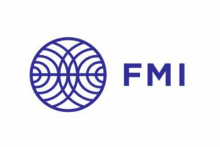
Finnish Meteorological Institute (FMI) is a research and service agency that functions under the Ministry of Transport and Communications. It has the mandate of producing weather, atmosphere, climate and marine related services required by Finnish society. FMI provides reliable information on the state of the atmosphere, and its characteristics and phenomena, with the aim of promoting safety and serving various needs of the public, industry and commerce, as well as contributing to scientific ends. FMI makes observations of the physical state of the atmosphere, its chemical composition, and electromagnetic phenomena. FMI also develops and applies numerical models in order to analyse and forecast various atmospheric physical and chemical processes. FMI hosts the Arctic Space Centre in Sodankylä, which is also Copernicus Collaborative Ground segment. FMI employs about 680 people, about 350 of which are involved in research. Personnel from two Units of FMI will participate in this project: Earth Observation Research of Space and Earth Observation Centre and Climate System Research Unit of Climate Change Programme.
The Earth Observation Research Unit of FMI’s Space and Earth Observation Centre (FMI-SPACE) has expertise in atmospheric research including satellite instrument and algorithm development, satellite remote sensing of greenhouse gases and atmospheric composition, atmospheric modelling, UV research, development of mathematical methods and software applications. FMI-SPACE operates the Arctic Space Centre in Sodankylä, Northern Finland. The Arctic Space Centre maintains and develops versatile ground-based measurements in support of satellite calibration and validation activities, and to study the interlinkages in the Arctic atmosphere-ecosystem environment. In addition, the Arctic Space Centre hosts infrastructure for satellite data reception, storage, and distribution.
Climate Research Program (FMI-CLIMATE) does basic and applied research on the different components of the climate system. The Carbon Cycle Group of the Climate System Research Unit studies greenhouse gas exchange between atmosphere and land ecosystems on global and regional scales by using soil-vegetation-climate models, as well as atmospheric inversion modelling. The group has a strong background in using GHG observations in model development. During recent years, the Carbon Cycle Group has been part of Nordic and Finnish Centers of Excellence in Research related to atmospheric composition, climate change, cryosphere and ecosystem science.
In WP4 Local and regional modelling and data assimilation FMI will participate in analysing anthropogenic CO2 emission signatures based on co-located satellite CO2 and NO2, plume modelling, development of plume inversion systems and uncertainty quantification.
In WP5 Connecting scales and uncertainties FMI will participate in the development of the modelling systems in connection to representation of the uncertainties in inversions.
In WP8 User engagement FMI will participate in building the connection to UNFCCC reporting in country-scale and engagement with stakeholders, in particular with the authorities in Finland.